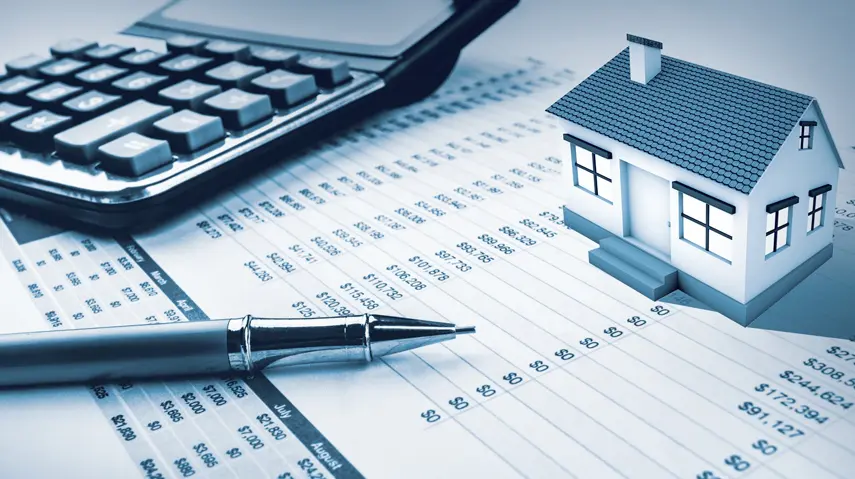What happens to My Mortgage if the Housing Market Crashes?
With concerns about another housing market crash on the rise, many homeowners are wondering what would happen to their mortgage if the market took a turn for the worse. Although no one can predict the future, there are steps you can take to protect yourself from financial hardship if the housing market does crash again. Keep reading to learn more about what happens to my mortgage if the housing market crashes and what you can do to safeguard your investment.
What is a Housing Market Crash?
A housing market crash is a period of sharp, sustained declines in real estate values across an entire region or nation. As prices drop, fewer people are interested in purchasing homes, resulting in decreased demand and further drops in values. During a housing market crash sellers may have difficulty finding buyers for their property or may be forced to offer deep discounts in order to attract buyers.
At the same time, the number of foreclosed homes on the market will begin to increase as lenders struggle to find accountable buyers for repossessed properties. Once overcrowded with unsold dwellings and foreclosure proceedings, prices usually stabilize and even start to rise again over time. Housing market crashes can be devastating for homeowners, but they can also present an opportunity for those looking to invest in properties at a reduced cost.
How Does a Housing Market Crash Affect Mortgages Specifically
A housing market crash can have significant implications on mortgage holders, from short-term financial losses to long-term impact on their credit. When the value of a home falls below its mortgage amount, homeowners may find themselves in negative equity, meaning they must pay more money than what their house is worth. This can significantly affect cash flow and necessitate going into debt, providing borrowers with added financial stress. Additionally, since many lenders set the loan-to-value ratio (LTV) when offering mortgages, it can become quite tricky to refinance when the housing market crashes and the value of property drops below its mortgaged amount.
This puts homeowners at risk of defaulting and being unable to generate new financing to help manage their mortgage balance during difficult times. Therefore, while a housing market crash presents many potential challenges with regards to home ownership and mortgages, understanding how mortgages work and planning accordingly is an important step towards mitigating any long-term impacts that may arise out of such economic downturns.
Ways to protect your mortgage during a housing market crash
During times of economic volatility, mortgage holders may find themselves in a challenging situation. However, it is possible to safeguard your mortgage with the right strategies. Knowing your budget, staying up-to-date on payments, keeping an eye out for hidden costs, and exploring refinancing options are all great ways to ensure you remain in a financially secure position when the housing market does not provide ideal returns.
It can also be beneficial to keep tabs on the real estate market and talk to a financial advisor about your risk tolerance before committing to any mortgage decisions. Protecting your mortgage during a housing market crash requires dedication and planning but can help you remain in a strong financial position over the long run.
What to do if your mortgage is already in trouble because of a housing market crash
If you’re a homeowner facing financial difficulties because of a housing market crash, don’t despair. There are several steps you can take to ensure that your mortgage remains affordable and that you stay current on your payments. Firstly, reach out to your lender as soon as possible in order to discuss reducing the size or frequency of your mortgage payments during this time. Doing so may help reduce stress and make it easier for you to manage other costs related to keeping up with daily life.
Additionally, depending on where you live, there may be local housing programs in place specific to your needs—reaching out to an expert in this area is a great way to get more information on these types of options. Lastly, if your income has been affected by the market crash, look into getting assistance from unemployment insurance or another government benefit program. By understanding what tools are available and strategizing effectively with lenders and expertise, you should be able to better manage your mortgage in difficult times like these. If you want to get some tips for selling your home in a competitive Canadian market, just check out our blog page!
Conclusion – What Happens to My Mortgage if the Housing Market Crashes?
In conclusion, the housing market crash can have serious implications on your mortgage and home ownership. Understanding how mortgages work and the potential risks associated with a housing market crash is key to protecting yourself and remaining in a financially secure position. Additionally, knowing what steps to take if you’re already facing difficulties due to a housing market crash can help you manage your mortgage more effectively over the long term. With the right strategies and dedication, you should be able to remain in a strong financial position no matter what fluctuations may occur in the housing market.
With that said, if you need help navigating the housing market in Mississauga, then rest assured because Joe Battaglia is here to help! Contact us today to get started!
You can also check out our additional resources below for more info!
Additional Resources (Social Media):
| The current state of Affairs in the Real Estate Market in Mississauga |
| Real Estate vs Regular Real Estate in Mississauga |
| Is the Housing Market Going to Crash |
| Housing Market Mississauga |


